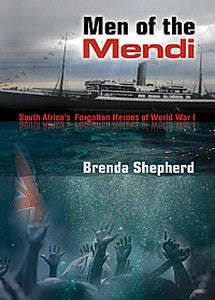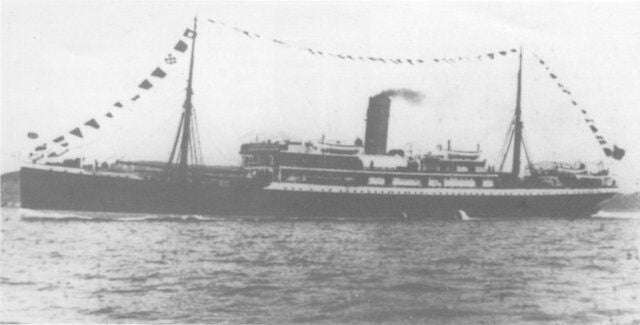At 5 am on 21 February 1917, in thick fog about 10 nautical miles (19 km) south of St. Catherine's Point on the Isle of Wight, the Royal Mail Steam Packet Company cargo ship Darro accidentally rammed Mendi's starboard quarter, breaching her forward hold. Darro was an 11,484 GRT ship, much larger than Mendi, sailing in ballast to Argentina to load meat. Darro survived the collision but Mendi sank, killing 616 South Africans (607 of them black troops) and 30 crew.Some men were killed outright in the collision; others were trapped below decks. Many others gathered on Mendi's deck as she listed and sank. Oral history records that the men met their fate with great dignity. An interpreter, Isaac Williams Wauchope, who had previously served as a Minister in the Congregational Native Church of Fort Beaufort and Blinkwater, is reported to have calmed the panicked men by raising his arms aloft and crying out in a loud voice:"Be quiet and calm, my countrymen. What is happening now is what you came to do...you are going to die, but that is what you came to do. Brothers, we are drilling the death drill. I, a Xhosa, say you are my brothers...Swazis, Pondos, Basotho...so let us die like brothers. We are the sons of Africa. Raise your war-cries, brothers, for though they made us leave our assegais in the kraal, our voices are left with our bodies."The damaged Darro did not stay to assist. But Brisk lowered her boats, whose crews then rescued survivors.The investigation into the accident led to a formal hearing in summer 1917, held in Caxton Hall, Westminster. It opened on 24 July, sat for five days spread over the next fortnight, and concluded on 8 August. The court found Darro's Master, Henry W Stump, guilty of "having travelled at a dangerously high speed in thick fog, and of having failed to ensure that his ship emitted the necessary fog sound signals." It suspended Stump's licence for a year.Stump's decision not to help Mendi's survivors has been a source of controversy. One source states that it was because of the risk of attack by enemy submarines. Certainly Darro was vulnerable, both as a large merchant ship and having sustained damage that put her out of action for up to three months. But some historians have suggested that racial prejudice influenced Stump's decision, and others hold that he merely lost his nerve. |





